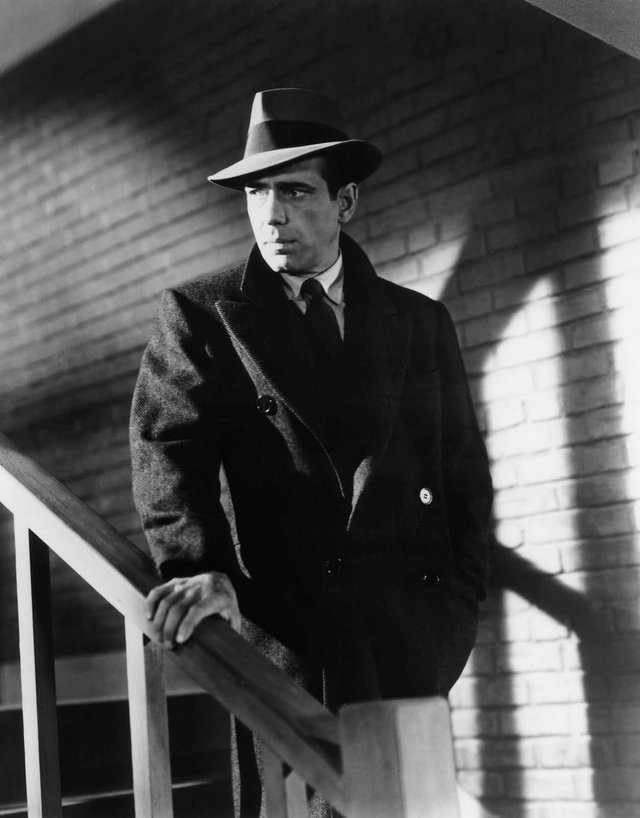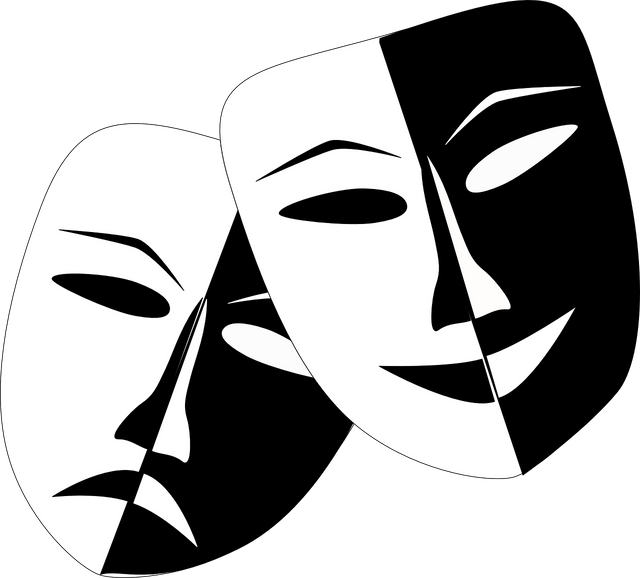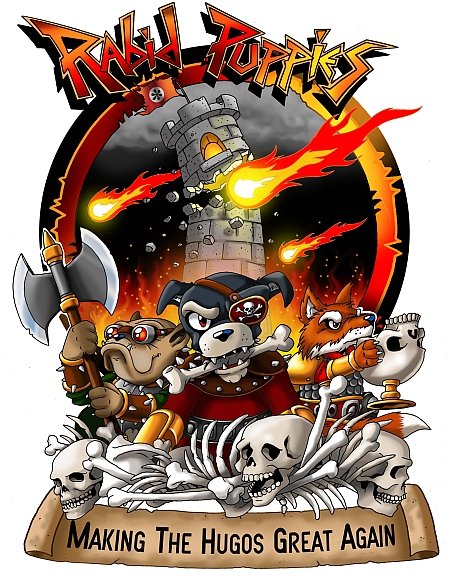'Gritty' and 'Realistic' SFF Isn't
Today it is all the rage to label a specific brand of modern science fiction and fantasy as ‘gritty’ and ‘realistic’. Championed by writers like Joe Abercrombie and George R R Martin, these stories star villain protagonists and antiheroes, oceans of blood, torture and treachery, and all manner of depredations. Every time such a dark story is published, critics declare them as masterpieces of gritty, brutal realism.
I don’t know about those critics, but such stories don’t match my experience of ‘gritty’ and ‘realistic’.
I grew up reading thrillers. The first time I encountered ‘realistic’, it signalled an impeccably researched story. Every important detail—tactics to terminology, dialogue to descriptions—reflected reality. ‘Gritty’ stories starred indomitable heroes who confronted overwhelming odds with charm, intelligence and firepower. Through force of will they overcame obstacles, identified and neutralised villains, and achieved their goals. The protagonists weren’t perfect, and many of them were not good people, but they held fast to their own code of honour. They might be hardened street predators, but even they had standards. Barry Eisler’s John Rain would never hurt a child, while Andrew Vachss’ Burke took one step further by punishing those who preyed on children. These protagonists demonstrated grit in story worlds that reflected reality.
The SFF Establishment has no idea what ‘grit’ and ‘realism’ really mean.
What is Gritty?

Down these mean streets a man must go who is not himself mean...
The Oxford English Dictionary defines gritty in this context as:
- Showing courage and resolve
- Showing something unpleasant as it really is; uncompromising
The difference seems simple: the thrillers I read used the first definition while dark SFF insists on the second. And yet this is not so.
The thrillers of my youth weren’t about pleasant things. Vachss’ stories had unflinching portrayals of child abuse, murder-for-hire, gang life, sexual assault and more. Dennis Lehane had stories about murderers, mobsters, kidnappers and other monsters in human skin. These and other stories dive into the darkness that dwells in the hearts of men and rip off the gilt to reveal the maggots squirming underneath. Yet they also show courageous and resolute protagonists who are willing to confront these villains and bring them to justice.
In the dark SFF style championed by Abercrombie and Martin, we only see the unpleasantness. A Song of Ice and Fire is marked by murder, betrayal, rape, intrigue, incest, rape, atrocities, war and of course, rape. SFF books in a similar vein feature unsympathetic protagonists with no redeeming traits, wanton cruelty and sadism, and temporary or hollow victories by the more sympathetic characters—if they indeed secure victories at all.
While the real world is unpleasant and unforgiving, these ‘gritty’ SFF works overexaggerate this bleakness to the point where the discerning reader cannot but disbelieve the stories. If the protagonists are cruel and sadistic murderers, why would everybody else still permit them to live and walk freely? Better to kill them before they cause more harm. If churches serve no purpose except as dens of iniquity and intrigue, why do they still exist? They certainly aren’t elevating humanity and have no positive impact on the story world, so people would not tolerate their existence. If oathbreakers and monsters consistently seize and maintain power, why has civilisation not already fallen into a barbaric free-for-all? This is the final fate of societies shattered by the weight of the Kali Yuga or the Twilight of the Gods, where brother turns on brother and all makes war on all.
A gritty work is harsh and uncompromising. It does not blow up the evils of the world well out of proportion. Writing must reflect the truth of the world to maintain verisimilitude. Allegedly ‘gritty’ SFF does not.
What is Realistic?

Man has two selves
The key part of ‘realistic’ is ‘real’. A realistic story must reflect reality. On the surface it simply means that the story must be well-researched. In my view, though, it is merely a basic requirement. Thrillers and SFF may be different genres, but the best examples of both fields have at least one thing in common: believable characters. And characters can only be believable through accurate portrayals of human nature.
Everybody knows the darkness of the human heart. Open a newspaper and you will see terrorist atrocities, gangland wars, murderers, child abuse and lying politicians in abundance. Evil lurks everywhere in the world. Humans can be beastly, cowardly, bloodthirsty, vicious and covetous creatures. This is reality.
Yet humans can also be noble. Churches have sponsored universities and hospitals, opposed tyrants and freed slaves, and propagated virtues and values. Ultra-rich people give away millions or billions of dollars every year to charitable causes. Strangers have banded together to help people in need. Troops and civilians demonstrate valour on and off the battlefields of the world. This, too, is reality.
Every man has two aspects. One is craven, power-seeking, vengeful, petty, and self-centred. The other is selfless, kind, virtuous, determined and undefeatable. A truly realistic work would reflect both sides of human nature. ‘Realistic’ SFF works shun this holistic approach, seeking only to amplify the former.
This approach does not make for good fiction. Readers need a reason to invest themselves in stories and characters. They must see themselves in the stories, or better yet, the people they aspire to become. Readers have no reason to care about story universes filled with nihilistic bloodshed and unsympathetic villain protagonists. They do care about characters who face struggles that resonate with the readers.
John Rain is a stone-cold hitman, but his conscience haunts him and he tries to redeem himself throughout the series. Burke is a career criminal, but he is loyal to his family of choice and targets monsters even worse than him. In their own way, these men embody honour and ethics in worlds that reject such values. They represent both the best and the worst of humanity, resonating with readers who live in the light and want to peer into the darkness. Contrast this with blackguards and torturers who revel in death and destruction, so far removed from conventional norms of good and evil that they have no common frame of reference with regular people. Readers have no ability to sympathise with such characters, and no reason to. If such people are the protagonists, it becomes very difficult for most readers to invest themselves in the story.
Make SFF Great Again

First the Hugos, and then, the industry!
I don’t understand why the purveyors of dark, dim fiction are pleased to call these stories ‘gritty’ and ‘realistic’. I wonder if they truly understand the meaning of the words they use, if their experience of reality is so small that they have experienced only corruption and depravity, or if they are simply projecting their beliefs about reality into fiction.
They are sad benighted souls who praise only the dark side of man and cannot or will not acknowledge the light. They flee from the brilliant splendour of creation for the nihilistic emptiness of unending atrocities. It is as if they dwell in the dark alien chambers beyond space and time where they spend their days playing accused flutes and vile drums to the nameless blasphemous bubbling nuclear chaos at the heart of nothingness.
Grit and realism means more than just stark portrayals of evil. It also acknowledges the bright side of human nature. The great SFF works of the past understood and explored cravenness and courage, villainy and heroism, good and evil. Thrillers today still do. Now is the time to study the lessons of these stories and make SFF great again.
--
Photo credits:
Sam Spade: The Maltese Falcon
Drama masks: Pixabay
Rabid Puppies 2016 logo: Vox Day
I think the problem with "dark, gritty, and realistic" fiction is that "realistic" is defined as what "dark, gritty, and realistic" fiction is. That is, if DGR fiction is not like DGR fiction, it is clearly unrealistic. The definition has become recursive.
But if you step outside your door, you will not see twenty power struggles going on over who controls the traffic lights. Or some kind of twenty-four hour shoot-out-a-thon. What you might even see is parents walking their children. The horror. The horror. The horrors of everyday life.
If "realistic" fiction does not involve people changing diapers, then it is only a subset of reality, or possibly a subset of unreality. If you want fiction like real life, then why not read about filling out tax forms, or going to restaurants, or helping a cow give birth? Those things are real. (And dang it, sometimes those tax forms are interesting.)
I tend to write stylized art, possibly influenced by anime. Things are brighter and more noble than real life--usually. If you want escape fiction, then why not write about a better world? Or a cooler world? Or one spectacularly exploding? Of all things, why suffer the reader through endless dreariness and political rants? (As I have seen one series do.)
That's an excellent point. People read fiction to get away from reality for a while. Ultra-realistic fiction is going to be mind-numbingly mundane. And ultra-grimdark fiction is going to be soul-crushingly depressing.
For me, 'realistic' means that the writer did the research and 'gritty' encompasses courage and uncompromising depictions of the story universe. There's plenty of room in there to write about bright and noble things and create a better world than ours. It's something I'm trying to achieve with my own work.
I guess it's easier to write and maintain a concentrated theme that way, which is something that kinda bored me halfway through Martin's stuff. Coming across Solarpunk last year was quite refreshing, even the subgenre's aptly named to brighten up the kind of grit that's so commonly found in cyberpunk.
IMO one of the best SFFs I've read recently that does the grit/realism thing quite well is Paolo Bacigalupi's The Windup Girl. (well the book's not that recent)
Yeah, it's easy to pile on atrocity after atrocity, but it doesn't necessarily make the story better either.
Solarpunk sounds interesting. I might have to go looking for them someday.
I've read part of The Windup Girl too. Enough to figure out that it wasn't to my tastes. But I suppose there's always an audience for books like that.
Wonderful post!
Thanks!
"The Expanse": gritty and realistic according to you?
Depends on how fast and loose you play with 'gritty' and 'realistic'.
The authors don't let science get in the way of storytelling. There are a number of scientific issues with the series that prevent it from being truly realistic. The rockets are so ludicrously powerful they would irradiate everyone without ten thousand kilometers, the magboots would short out computers and wiring, Gunnery Sergeant Bobbie Draper is always erroneously called 'Sergeant', and there is no such thing as stealth in space. The last bit makes the entire plot of Nemesis Games impossible in our universe.
With that said, the Expanse captures the feel of interplanetary civilisations running at the margins. The characters display grit and run through a realistic range of human motivations and emotions. There's just enough verisimilitude that it supports the characters, their interactions and the rest of the plot.